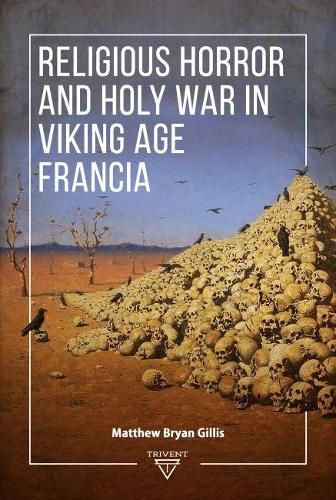Readings Newsletter
Become a Readings Member to make your shopping experience even easier.
Sign in or sign up for free!
You’re not far away from qualifying for FREE standard shipping within Australia
You’ve qualified for FREE standard shipping within Australia
The cart is loading…






Religious Horror and Holy War in Viking Age Francia explores how authorities in western Francia used horror rhetoric to cast Christian soldiers, who robbed the poor and the church, as monsters that devoured human flesh and drank human blood. Adapting modern literary horror approaches to medieval sources, this study reveals how such rhetoric served as a form of spiritual weaponry in the clergy’s attempts to correct and condemn wayward military men. This investigation, therefore, unearths long-forgotten Carolingian thought about the dreadful spiritual reality of internal enemies during a time of political division and the Northmen’s depredations. Yet such horror also informed a new understanding of Christian heroism that developed in relation to the wars fought against the invaders. This vision of heroic soldiers, which included military martyrs, culminated in ideas about holy war against the pagans. Thus Carolingian religious horror and holy war together belonged to a body of ideas about the spiritual, unseen side of the church’s cosmic conflict against evil that foreshadowed later medieval Crusading thought.
$9.00 standard shipping within Australia
FREE standard shipping within Australia for orders over $100.00
Express & International shipping calculated at checkout
Religious Horror and Holy War in Viking Age Francia explores how authorities in western Francia used horror rhetoric to cast Christian soldiers, who robbed the poor and the church, as monsters that devoured human flesh and drank human blood. Adapting modern literary horror approaches to medieval sources, this study reveals how such rhetoric served as a form of spiritual weaponry in the clergy’s attempts to correct and condemn wayward military men. This investigation, therefore, unearths long-forgotten Carolingian thought about the dreadful spiritual reality of internal enemies during a time of political division and the Northmen’s depredations. Yet such horror also informed a new understanding of Christian heroism that developed in relation to the wars fought against the invaders. This vision of heroic soldiers, which included military martyrs, culminated in ideas about holy war against the pagans. Thus Carolingian religious horror and holy war together belonged to a body of ideas about the spiritual, unseen side of the church’s cosmic conflict against evil that foreshadowed later medieval Crusading thought.